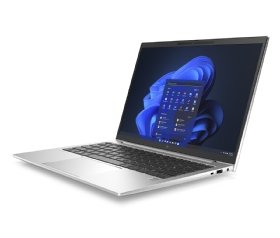Dell, Lenovo, HP pitch sustainable laptops (original) (raw)
Dell, Lenovo and HP have introduced laptops to help customers meet environmental, social and governance policies, which have become critical factors in buying decisions.
Lenovo, Dell and HP have rolled out sustainable materials like ocean-bound plastic and "vegan leather" in their laptops to meet tech-buyer demand for environmentally friendly PCs.
The vendors highlighted their green bona fides while introducing new products at this week's Consumer Electronics Show (CES). The manufacturers said they were using materials like plastic that would typically end up in the ocean in computers and packaging, while ensuring that customers could recycle PCs.
HP unveiled its EliteBook 805 series laptops, saying those computers would use 5% ocean-bound plastic in their speaker enclosures. The company started its recycle plastic initiative in 2016 and said it had used 1.7 million pounds in its ink cartridges, monitors and tote bags as of early 2021.
Lenovo boasted that its upcoming ThinkPad Z Series laptops -- the Z13 and Z16 -- include 75% recycled aluminum and a cover made of recycled plastic that the manufacturer called "vegan leather" because it wasn't made from fossil fuels.
The Yoga 6 laptop features a cover and power adapter with recycled plastic or aluminum. All laptop packaging uses compostable bamboo and sugarcane, while ocean-bound plastic is in Lenovo's ThinkCentre neo desktop packing materials.
Lenovo also extended its carbon-offset service, previously available to business customers, to consumers. Customers who buy Legion or Yoga PCs can opt into the service, which compensates for the PC's carbon emissions throughout its life.

HP's EliteBook 805 series uses ocean-bound plastic in its speaker enclosure.
Dell said it has refined its manufacturing process to have a smaller carbon footprint, and that the aluminum components of its upcoming XPS 13 laptop are 100% recyclable. The company recently launched the Project Luna initiative to reduce the materials used in manufacturing and make it easier to recycle computers.
Edith Cecchini, a project director at Ocean Conservancy, commended the manufacturers' campaign to reuse materials. She said the move to reduce the amount of plastic that ends up in the ocean is worthwhile.
"The issue of ocean plastic is going to take a lot of different solutions," she said. "It's not just going to be one [effort] to collect plastic that's ocean-bound that's going to fix this, but it certainly helps."
The largest PC vendors have focused more on sustainability in recent years, as tech buyers need to meet their firm's environmental, social and governance (ESG) policies, said Technalysis Research founder Bob O'Donnell. A 2021 report by research firm IDC found that 43% of 1,000 decision-makers said sustainability was a critical factor in their tech-buying choices.
"You will see some companies say, 'We only want to work with [vendors] who we believe have good ESG programs,'" O'Donnell said.
Tech companies can still do more to help the environment, Cecchini said. If vendors make laptops easy to repair and refurbish, they can cut down on waste. If computers had longer life spans, there would be less of a need to recycle materials in the first place, she said.
Mike Gleason is a reporter covering unified communications and collaboration tools. He previously covered communities in the MetroWest region of Massachusetts for the Milford Daily News_,_ Walpole Times_,_ Sharon Advocate and Medfield Press_. He has also worked for newspapers in central Massachusetts and southwestern Vermont and served as a local editor for_ Patch_. He can be found on Twitter at @MGleason_TT._